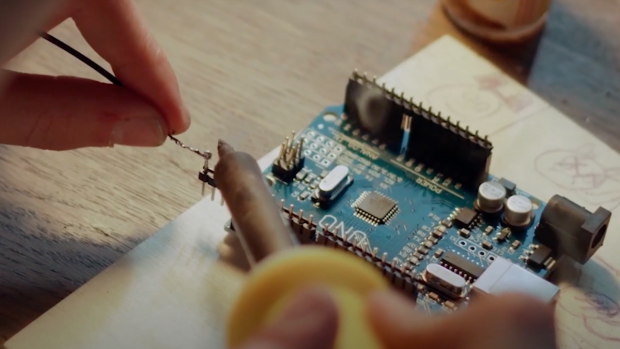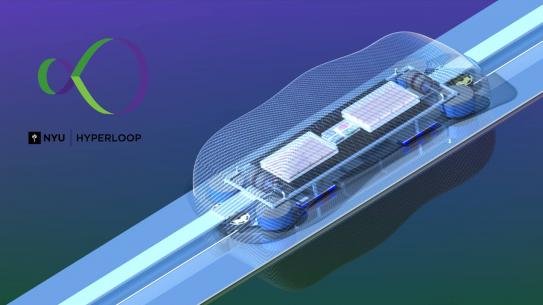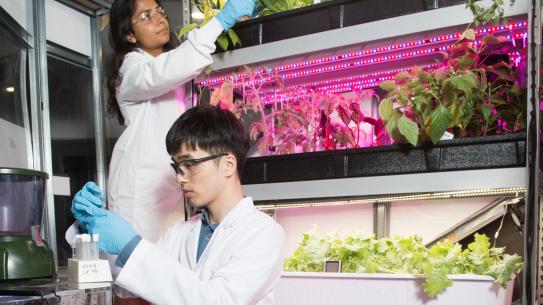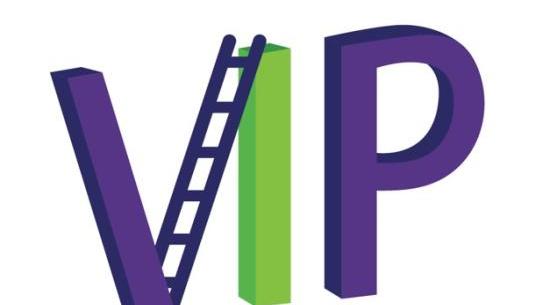Hands-on learning takes off at Tandon
How Tandon is re-engineering the curriculum to prioritize experiential learning and prepare students for the needs of a changing world

With technology playing an integral role in nearly every aspect of our lives — from communication, healthcare, education, and transportation to the security, usability, and sustainability of entire financial markets and supply chains — companies and organizations across sectors are viewing technology as an essential function. In other words, these days every company is a tech company. And as technology’s influence expands into more areas, the decisions engineers and technologists make will have significant and lasting implications for society at large.
As a result, engineering schools have an opportunity, and responsibility, to educate next-generation professionals on more than just the sophisticated set of platforms, tools and technologies they will need in technology and engineering-driven roles. Graduates can also use coursework to learn how to communicate effectively with people of varying skill sets, and how to work seamlessly in and lead cross-functional teams. They can be taught to consider the broad applications for and consequences of their decisions, whether that’s thinking about the power demands of new technologies (like the climate implications of mining cryptocurrency) or the importance of how artificial intelligence models are trained to prevent unintentional bias.
That’s why Tandon is continually rethinking engineering education to place a deep emphasis on teamwork, experiential and project-based learning, and cross-disciplinary initiatives that will prepare students to excel in a dynamic and collaborative workplace, and develop and leverage technology responsibly.
These changes have permeated the entire undergraduate curriculum, from revamping the required undergraduate Introduction to Engineering course to incorporating more hands-on learning and sustainable engineering practices; introducing undergraduate courses in ethics and responsible data science; enhancing doctoral education to include more leadership development and ethics guidance; and introducing a new doctoral track in Urban Science.
Be a VIP
Among the most exciting developments has been the explosive expansion of our Vertically Integrated Projects (VIP) program. In 2016, when the initiative kicked off, the Tandon website explained: “What if there were a way to work on a real-world project so big and so important that it spanned almost your entire academic career? At Tandon, students now have the chance to find out, thanks to the Vertically Integrated Projects (VIP) Program. VIP was created so that learning isn’t fragmented into years, semesters, or class periods, and scholarship isn’t slotted into rigid disciplinary silos. It aims to encourage the type of long-term, in-depth learning that keeps students engaged and improves career preparation.”
Back then, students had the option of joining just a handful of teams: that number has now burgeoned to over 40, with new teams forming on a consistent basis. “If any student or faculty member has an idea for a project that would benefit from multidisciplinary collaboration and group effort, there’s the possibility of launching a new team focused on it,” explains VIP Manager Maria DiKun. “That’s one of the main reasons that there are now over 650 students participating, with almost 2,000 able to include the program on their CVs since it launched.”
VIP teams, which earn students one or two credits per semester, include those focused on research, industry collaborations, design, entrepreneurship, and serving the community. Some have been around since the earliest days of the program, continuing to evolve and expand.
These include:
NYU Hyperloop
NYU Hyperloop had its genesis in the heady period when SpaceX asked students from around the world to help design a transportation system of the future — one in which individual pods would use magnets to frictionlessly whisk passengers or cargo through a series of metal tubes at speeds of up to 760 miles per hour. In 2017 SpaceX held the Hyperloop Pod Competition and invited teams to test their prototypes on a purpose-built track in California; while some 700 entered, only 27 were tapped to compete — NYU among them, thanks to an innovative flatbed-like design.

Although the competition was discontinued in 2019, there has been steady private investment in the technology, and Industry Associate Professor of Mechanical and Aerospace Engineering Arezoo Hajesfandiari, NYU Hyperloop’s current advisor, asserts that competing is almost beside the point. “Several companies are moving forward to design and build high-speed systems that employ magnets to elevate and propel the train cars, and our students are getting hands-on experience in furthering those innovations.”
NYU Urban Food Lab
NYU Urban Food Lab is an aquaponic vertical farm — a configuration that enables food to be cultivated in urban areas in a controlled environment, allowing for year-round growing without the environmentally costly effects of conventional farming. A closed-loop system, it houses fish, which feed on sustainably sourced fish food to produce nutrient-rich waste, which is then pumped out of the tanks. The waste travels through hoses to grow shelves where it is fed directly to the roots of the plants. The plants absorb the nutrient-rich waste, creating an incredibly efficient system that utilizes every last drop of its resources.

Now under the direction of Brandon Kim, a graduating senior who is among the last of the project’s original participants, the farm underwent extensive renovations after pandemic restrictions were lifted and now encompasses a mycology group focused on edible mushrooms, a public policy group with expertise on urban-farming regulations and best practices, a group in charge of the optical fiber daylight system that reduces LED light use, and an air quality analysis subteam.
Kim — who chose to study at NYU in some part because of the possibility of exploring urban farming and who has already been hired by a major Jersey City-based vertical farm — says the team has even more plans in the works. “Omar Gowayed, the graduate student who founded the farm and later taught the for-credit course connected to it, was very ambitious and forward-thinking,” Kim explains. “He approached the EPA and got us funding to implement a plastics-recycling program using mealworms, and we’re currently conferring with the Jasper Kane dining hall to incorporate hydroponically grown produce into their operations.”
In addition to those legacy projects, several newer teams now fall under the VIP umbrella, including:
Community Science Design Lab
Community Science Design Lab is overseen by Assistant Professor of Civil and Urban Engineering Andrea Silverman, who has won recognition for her work on FloodNet, and Post-Doctoral Researcher Catherine Hoar. “Our initial goal is to research, brainstorm, and design ways to allow the city’s high school students to participate in environmental work; we then hope to partner with local high schools to implement our plans and provide them with individual, university-level experiences,” says Hoar. “They could, for example, collaborate to collect data related to flooding, air quality, or other environmental challenges across the city. Tandon students on the team, no matter what their major — from civil engineering to data science to biochemical engineering — are deeply interested in protecting the environment, and we anticipate that many of the city’s high school students share that interest.”
NYU Processor Design Team
NYU Processor Design Team is aimed at leveraging the open-hardware movement to design novel microprocessorsthe and is the brainchild of Industry Associate Professor of Computer Science and Engineering Jeffrey Epstein and student and former Navy Electronics Technician Vito Gamberini. “We’ve attracted a strong initial cohort of students, from sophomores fresh from their first Computer Architecture course to master's students with significant industry experience,” says Gamberini, who created the project in partnership with Purdue’s System-on-Chip Extension Technologies group.
“We expect them to gain skills that are in high demand in the job market,” he continued. “Consider that certain companies need purpose-built chips that giants like Intel and Nvidia can’t effectively provide. The major players have historically treated their designs and processes as trade secrets, but the move towards an open-hardware ethos is changing things. We think Tandon is really going to shine in this sphere.”
Industry Associate Professor of Civil and Urban Engineering Jack Bringardner, who directs both the VIP program and Tandon’s General Engineering program, agrees that participating gives students a leg-up in the job market. “They develop knowledge and skills that would be impossible to get during a single lab project or short internship,” he asserts, “and they’re having fun while they’re doing it.” The term “team” is an exceptionally apt one, he believes. “At some schools, you might gravitate to joining the football or basketball team. VIP allows them to find community and be part of a team through academic pursuits, with their advisors serving as coaches and mentors.”
A first-person perspective: Vu Nam Phan (Mechanical Engineering, ‘24)
“My father is a mechanical engineer, and his job has taken us all over the world, but I was determined to study in the U.S. So it was upsetting when the COVID-19 pandemic hit just as I was about to begin my freshman year. I took Zoom classes from Malaysia and was excited to hear about VIP, which was still up and running on a virtual basis.
I joined the RoboMaster team, which designs, programs, and builds robots to compete in an annual competition. That first semester, I mainly just did CAD work, but when travel restrictions lifted somewhat I came to Brooklyn. It was still a little like a ghost town but I was able to start actually building a robot, so that was exciting! By sophomore year, I was the team’s mechanical engineering lead, and I’ve since joined a second team, RoboSub, which builds autonomous underwater vehicles.
As engineering students, we learn a lot of theory, and VIP lets you put that theory into practice. It was a little scary being a first-year student and collaborating with older, more experienced people, but working with seniors turned out to be one of my favorite parts; they helped me hone my skills in 3D modeling, manufacturing processes, and other areas, and I feel that as an international student, the program is enabling me to use my time in the U.S. and NYU’s resources to the fullest possible extent.
My advice for any new student is to not be intimidated. There’s certain to be a team that interests you — and if there’s not, you can try starting one — so just do it!





